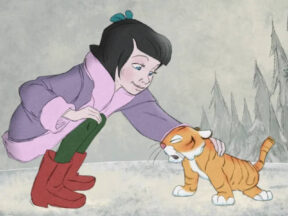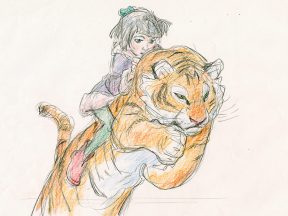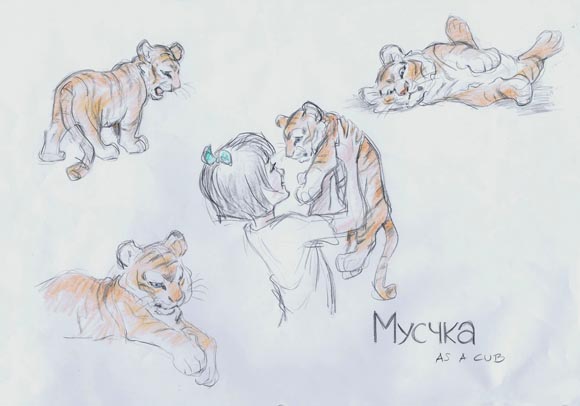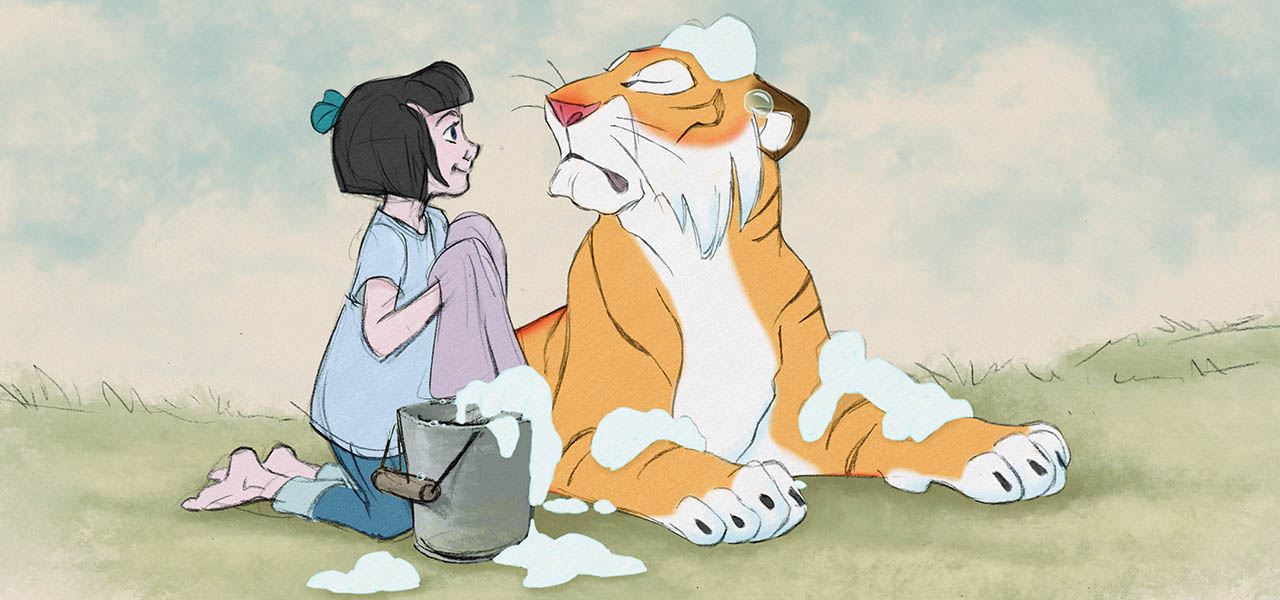
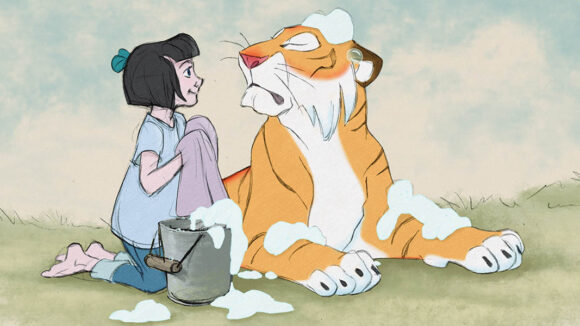
How A Legendary Disney Songwriter Pushed Andreas Deja To Make His Directorial Debut With ‘Mushka’
In his three decades at Walt Disney Animation Studios, Andreas Deja supervised animation for many of the studio’s most noteworthy characters, including Jafar in Aladdin, Scar in The Lion King, Gaston in Beauty and The Beast, and Lilo in Lilo and Stitch. Now, Deja proudly makes his Oscar-qualified directorial debut with the musically-charged action short Mushka.
But Deja’s journey from Disney to Mushka is anything but ordinary.
Deja was an 11-year-old in Germany when he saw his first Disney film. “I went to the theater to see The Jungle Book, and my life changed that day,” he recalls.
It was then that his fascination and love of drawing and making art came to life. “It hit me immediately that I had to be part of it.” Like many, his childhood was filled with Disney animated films such as Mary Poppins, The Aristocats, and many more featuring classic music by the acclaimed songwriting duo The Sherman Brothers.
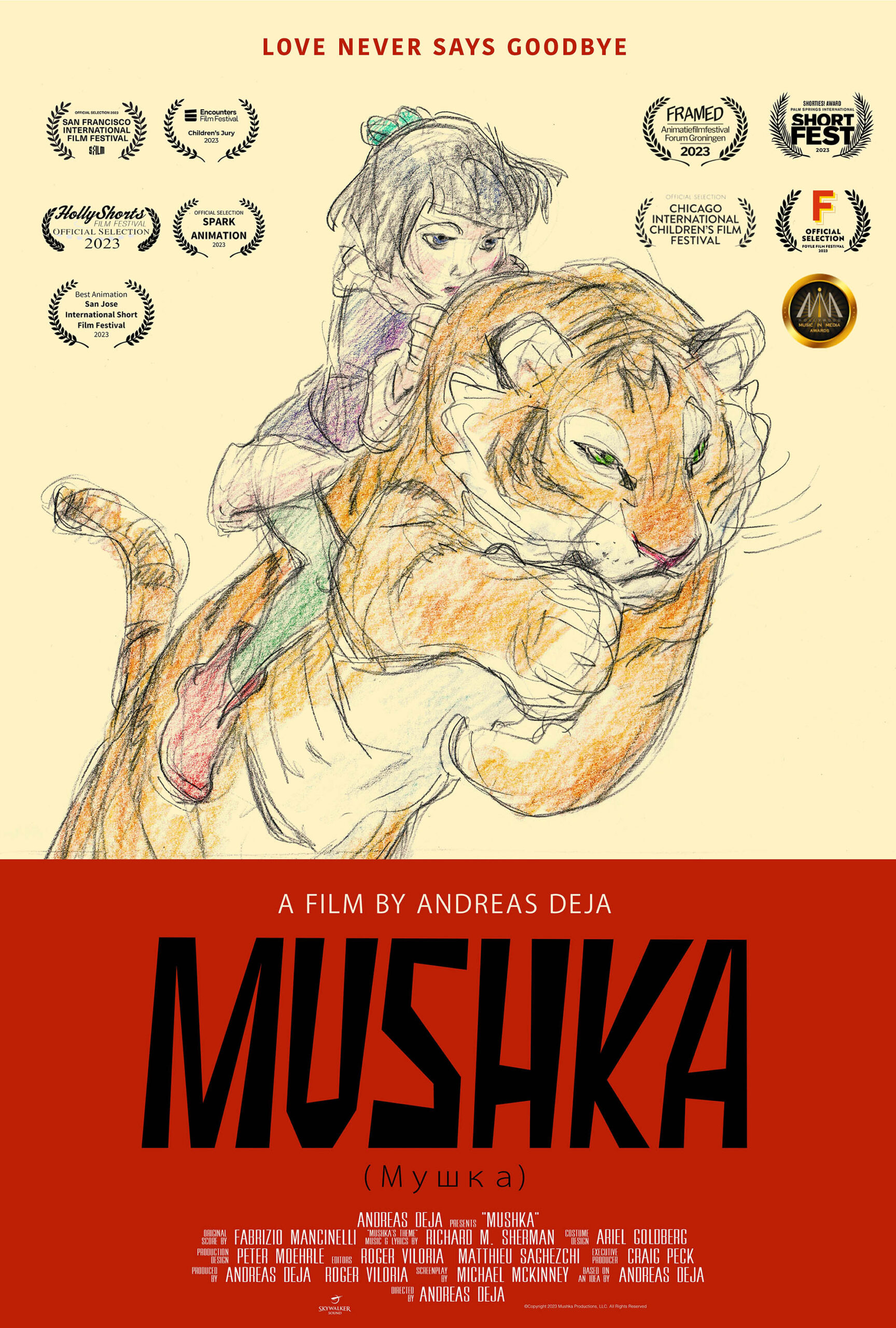
Deja only spoke German at the time, so he asked his English teacher to help him write a letter to Disney, and to his surprise, the studio answered. “They told me that if I wanted to pursue animation as a profession, I would have to start by drawing animals as well as people,” he remembers. Throughout childhood and into art school, Deja did just that. As a student in art school, he again wrote to Disney, this time including samples of his drawings, after reading about a new training program headed by Eric Larson, one of Walt Disney’s Nine Old Men.
“Larson replied by saying that he thought I had what it took, and I nearly fainted,” Deja recalls. The next step for the young artist was to take a leap of faith and move to Los Angeles with the promise of a six-week training program and no long-term job offer. That temporary job became a 30-year career at Disney, where Deja also had the good fortune to meet and befriend one of the greats behind those classic songs from his childhood, Academy Award-winner Richard Sherman (The Jungle Book, Marry Poppins).
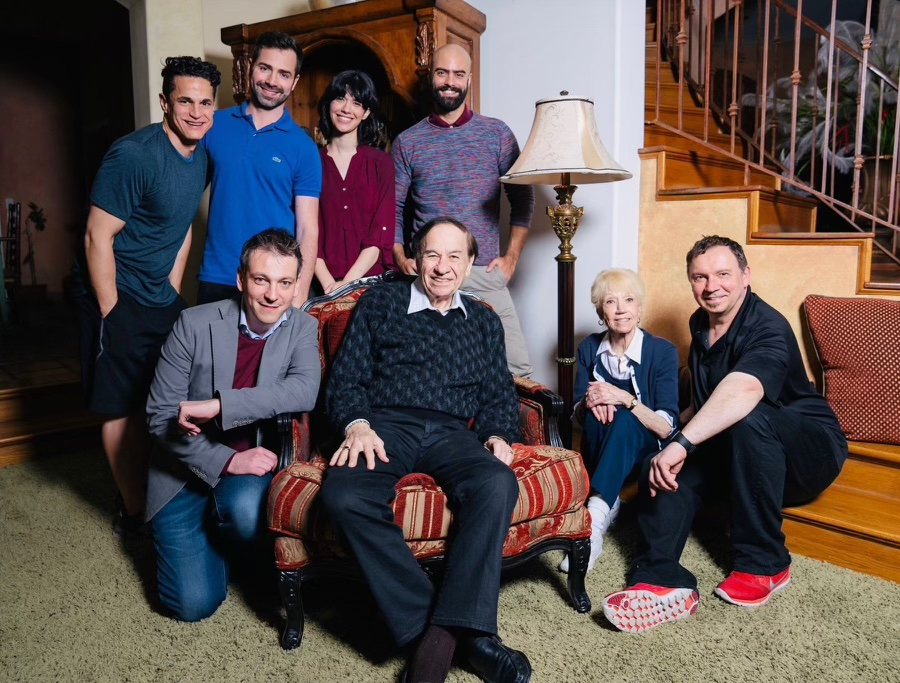
In late 2010, the feature animation industry was changing, and Deja left Disney for new challenges. His passion for hand-drawn animation pushed him to launch his own project, where he would both animate and direct for the first time. “I was excited… and scared,” he says. “I had always been very happily focused on one character. Now I was faced with learning all aspects of making an animated film!”
“I wanted something substantial to animate, something that had a story and believable characters. I started asking myself a series of questions. ‘What do I like to draw the most?’ was first. Because of my love of animals, I knew a tiger would be really fascinating. I realized if I pair it up with a little girl, there would be a nice contrast in terms of that relationship, and it would be exciting to build a story around that.”
As Deja began working on Mushka, he met an old friend for lunch and a reunion that would significantly impacted the film’s future. As he tells it, “I was having lunch with Richard Sherman at the time, and he asked me what I was doing now, having left the studio [Disney]. I very casually shared my thoughts and early planning on a story about a girl and a tiger for a project I wanted to animate… and direct.” To Deja’s surprise, Sherman immediately wanted to know more about it. “It was early in the process, and we barely even had the title, but his interest encouraged me to elaborate, and I must have told the story particularly well that day.”
“Richard got really excited about Mushka,” Deja recalls. “His fingers started tapping on the side of the table. Then he said, ‘Oh, this is interesting. Maybe somebody here at this table with a musical background could write some music or a song for the film.’ I couldn’t believe it.”
Sherman wrote the Mushka theme that is used throughout the film as well as “Mushka’s Lullaby,” which plays during the film’s end credits. Composer Fabrizio Mancinelli used Sherman’s music, in various tempos, throughout the film’s score. “I hear a bit of a John Williams tone to it, but it all started with this amazing and unexpected gift by Richard Sherman,” Deja explains.
“Never in my life did I think that a project of mine would feature music from the man who had such a huge impact on my childhood. I’m honored and grateful for this beautiful circle of life moment we have had in creating the film.”
In deciding on a style for Mushka, Deja thought back to those first tune-filled Disney films he had seen as a kid, including The Jungle Book, 101 Dalmatians, and The Sword in the Stone. “They were drawn in a great sketchy way,” he recalls.
“The characters had black outlines, and there is a beautiful looseness to that kind of animation that I’ve always loved. So, this being my first solo project, I thought… I really want to do that style, too!” With Mushka, Deja wanted something that almost looked unfinished and had artistic human touches.
“That’s the idea behind the artistic style,” he says.
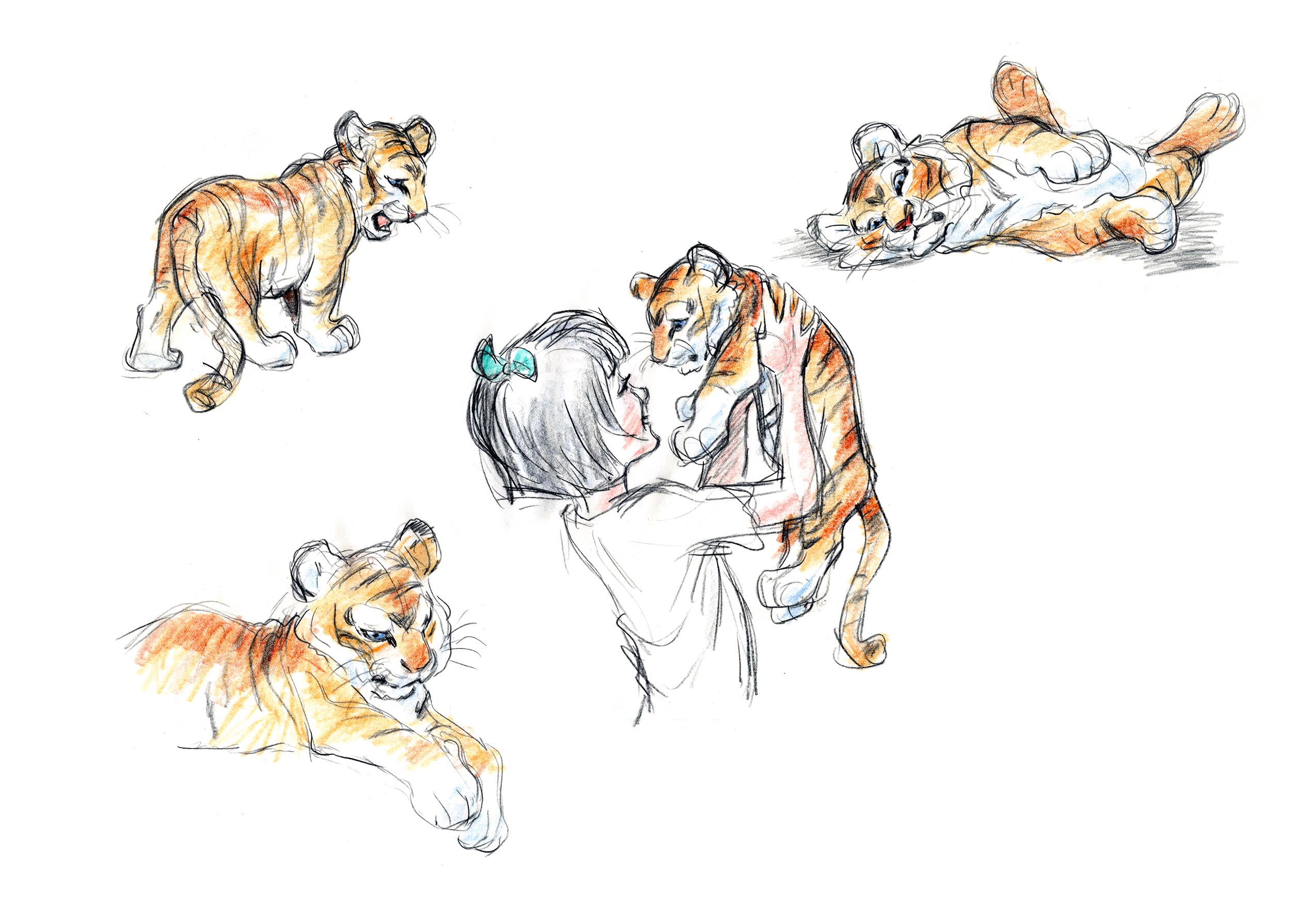
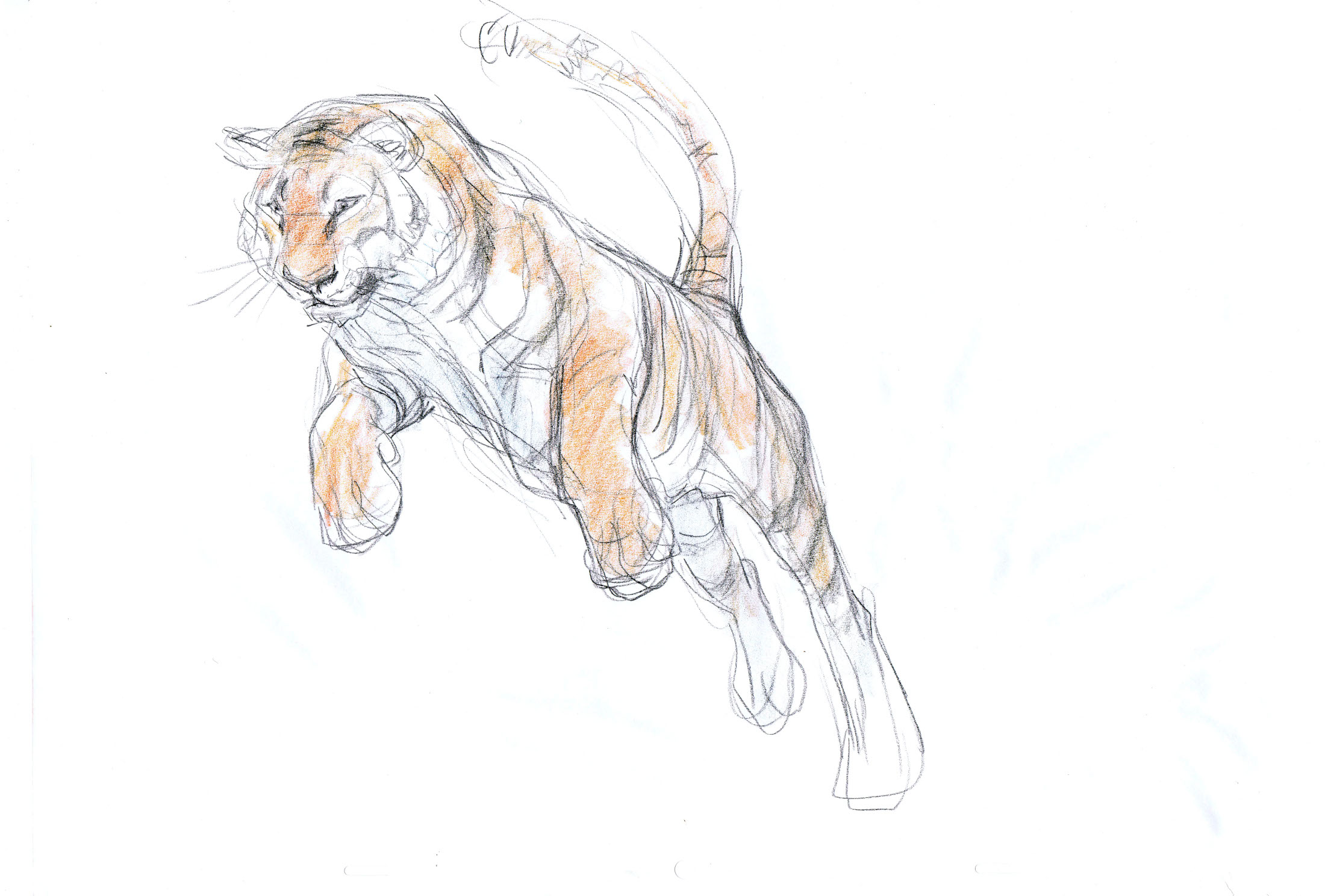
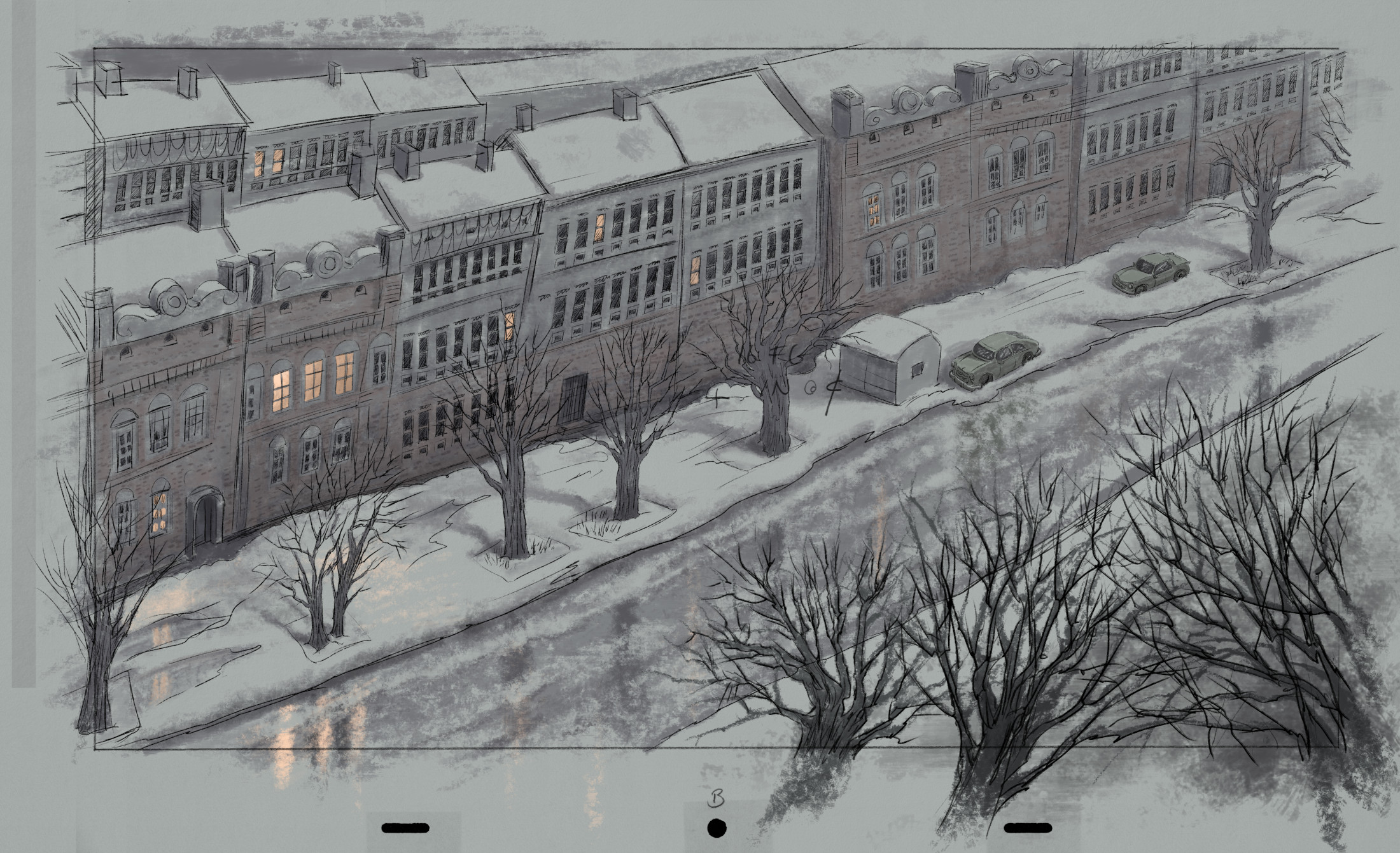
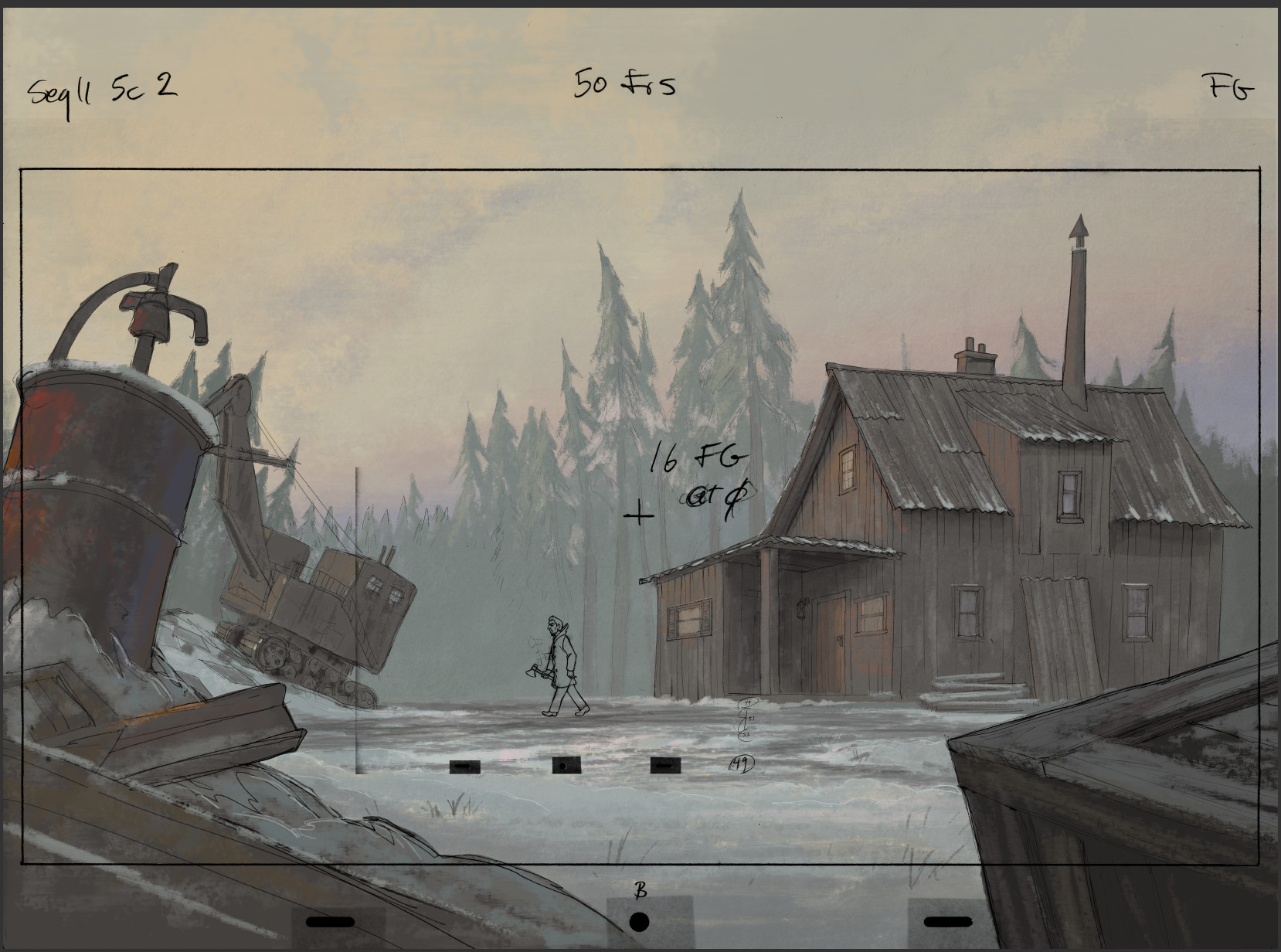
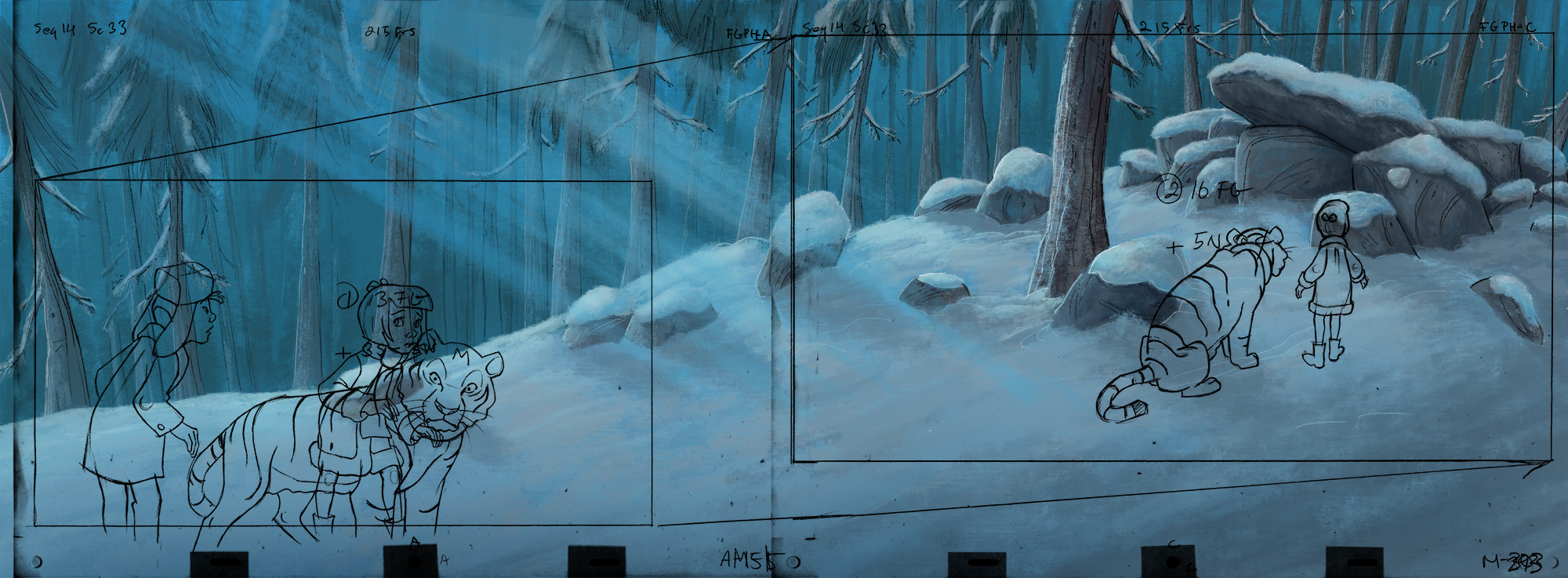
While Deja animated much of the film himself, he called upon colleagues to join him along the way. The animation roster ranged from veteran talents like Andreas Wessel-Therhorn, Greg Manwaring, Steve Gordon, and Tim Ingersoll to rising newcomer Courtney DiPaola. Natalie Franscioni-Karp painted most of the film’s backgrounds.
“Our crew was small,” says Deja. “My freelance artists might only be available for two weeks before they had to move on to another project. But because we didn’t have a studio looking over our shoulders, we could work at our own pace.”
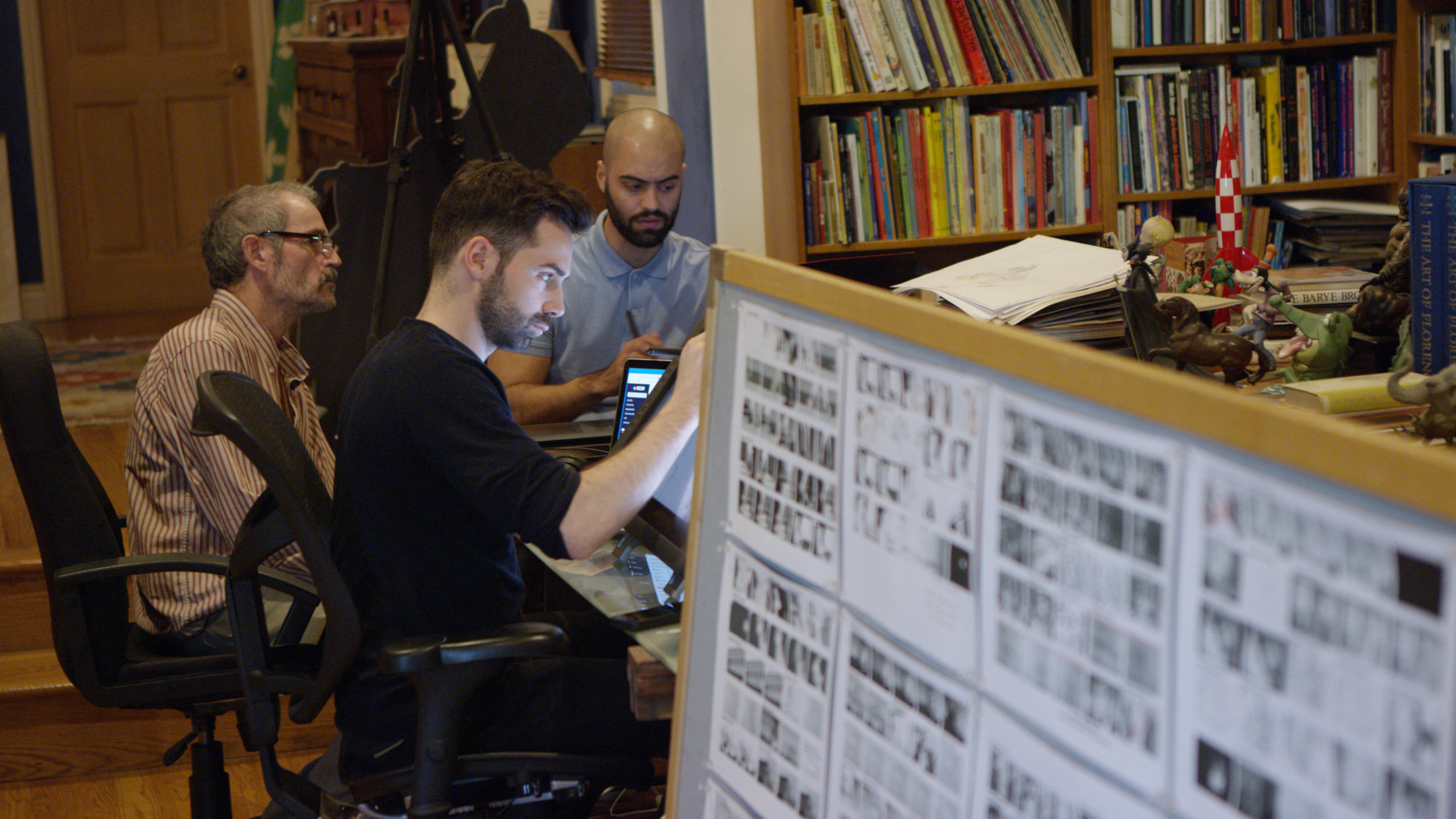
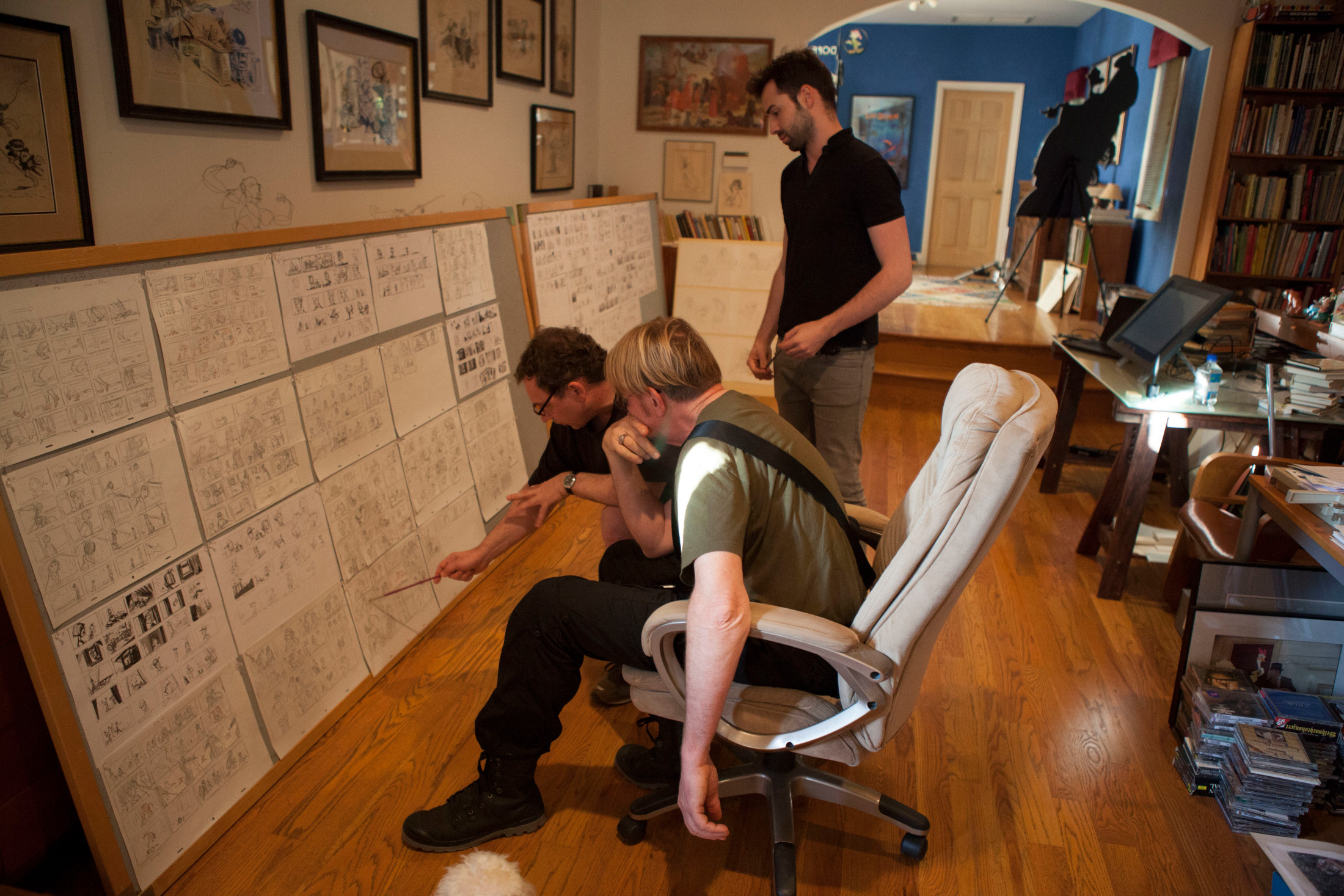
“I’m very proud of what we’ve accomplished with Mushka,” says Deja. “The thrill of directing a project and seeing it all come together has been so gratifying to me, not just as an animator but the whole thing. With Mushka, I’ve proven to myself that even at my level of experience and age, I’m up for new challenges.”
“I hope Mushka will remind audiences that there is still a magical aspect to drawings that come to life and that there is still tremendous value to hand-drawn animation – it can act and tell you a great story. These drawn characters have feelings that bring joy and make you really feel something.”
“If you had told that 11-year-old boy seeing The Jungle Book for the first time that he would one day direct and animate a film with a tiger as the main character and a song by the composer of those wonderful tunes from his childhood, he would never have believed it,” says Deja. “I’m so proud of what I’ve accomplished in my career, and Mushka really has been the experience of a lifetime.”
Learn more about the film at MushkaTheMovie.com.
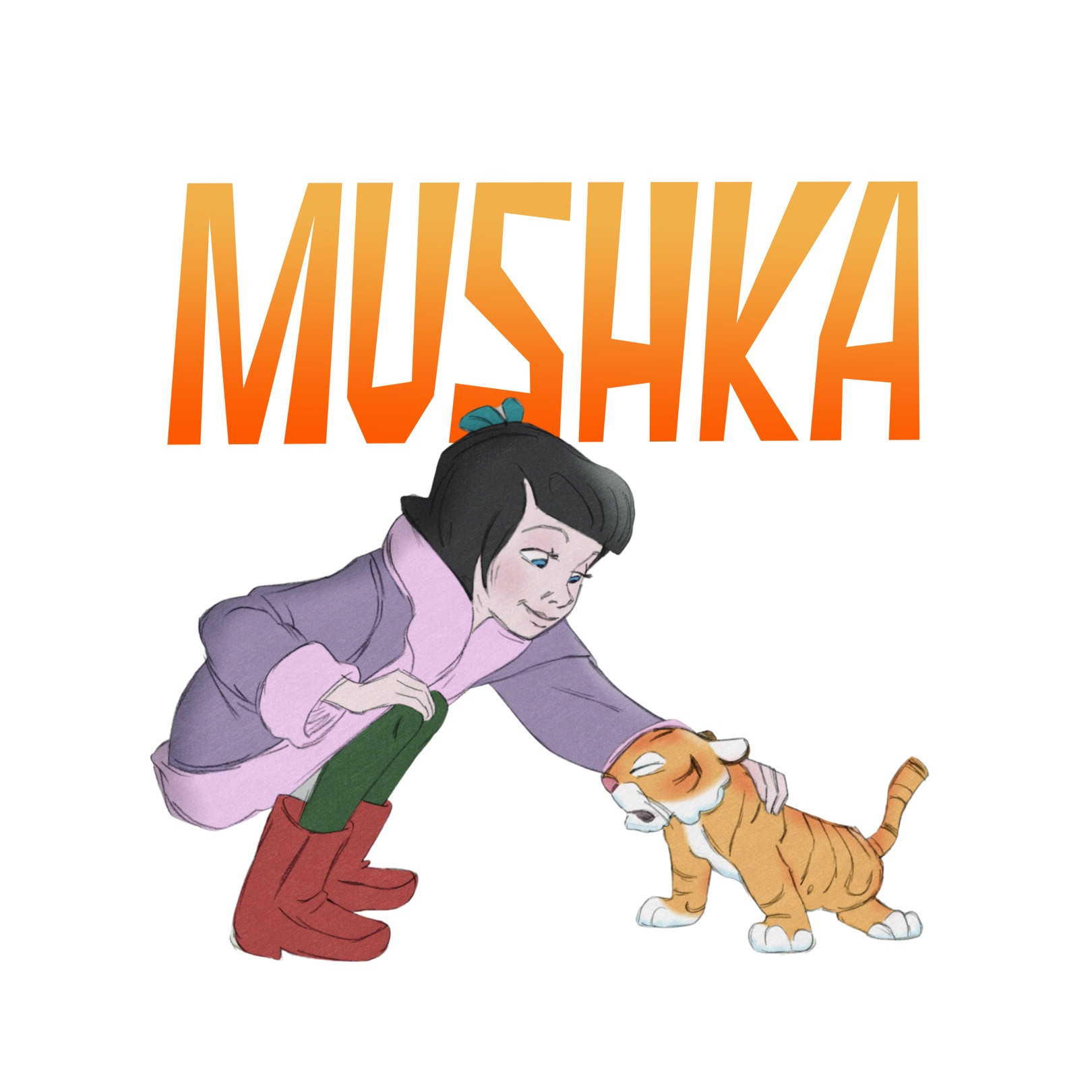

.png)
